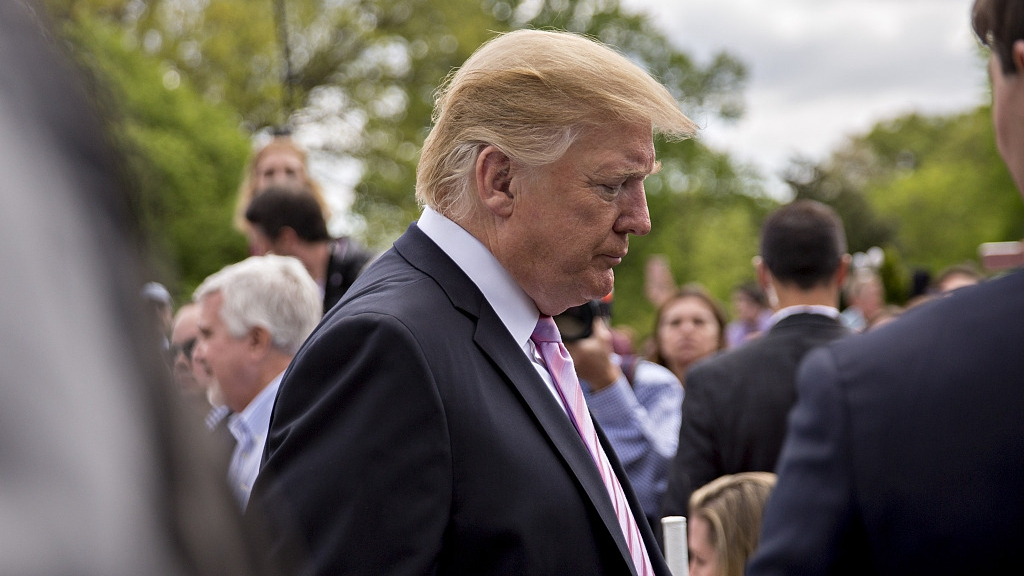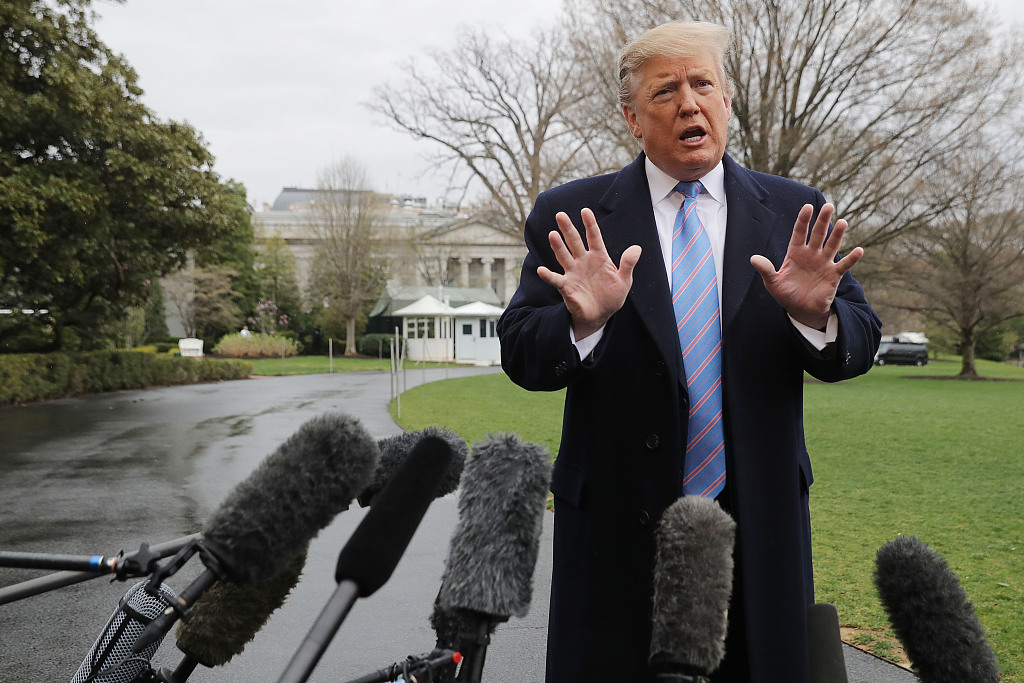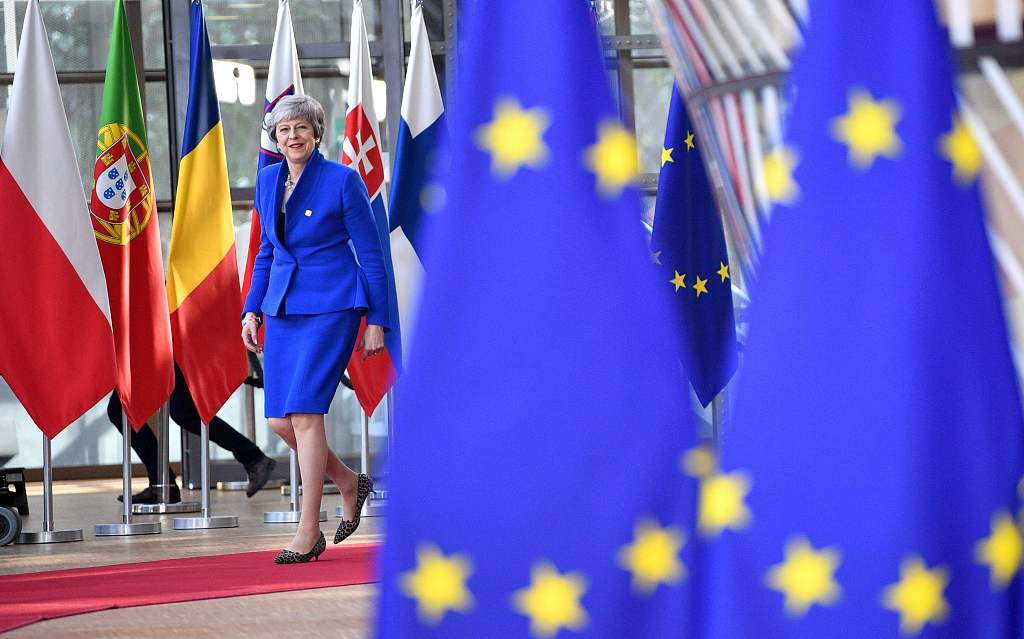
Opinion
12:23, 12-May-2019
Trump flip-flops on U.S.- China trade tensions. What did analysts miss?
Tom Fowdy

Editor's note: Tom Fowdy is a British political and international relations analyst and a graduate of Durham and Oxford universities. He writes on topics pertaining to China, the DPRK, the UK and the U.S. The article reflects the author's opinion, and not necessarily the views of CGTN.
In the fallout of Trump's dramatic tariff increase on specified imports from China on Friday, the president has emerged with a tougher and more uncompromising stance against Beijing. From once saying a deal was seemingly close, the White House is now threatening to postpone negotiations until after the 2020 election.
On the evening of May 11, Trump tweeted "the deal will become worse for [China] if it has to be negotiated in my 2nd term" and that it would be "wise for them to act now." At the same time, he also stated that if the Democrats were to win next year's election, America would continue to be ripped off.
The tweets may stand to be a cold reminder to those who thought Trump was determined to clinch a deal purely for the cause of achieving economic goals. Those who believed such have in fact assigned far too much rationale to the president's approach, underestimating the clear role of identity embedded within his political platform and relationship with the electorate.
Instead, the president now appears to be intensifying the trade war with the purpose of whipping up nationalist sentiment against China with the view to winning his own domestic political struggle. Thus, he's not desperate and if things don't work out, all evidence points towards wielding it as an election weapon.
In previous pieces, I made several incorrect assumptions. Those being: That motivated by the necessity to secure economic gains for his "America first" platform, claiming that he is restoring jobs and manufacturing to the United States, Trump was earnest in seeking a serious deal with China to strengthen his re-election prospects.

U.S. President Donald Trump talks to reporters as he leaves the White House in Washington, DC, April 5, 2019. /VCG Photo
U.S. President Donald Trump talks to reporters as he leaves the White House in Washington, DC, April 5, 2019. /VCG Photo
Given this, it was further assumed that he would logically not want to escalate the trade war accordingly as such would pose negative consequences for the American economy.
There was some empirical evidence to believe this approach. Trade talks opened, negotiations were going well; the first deadline for tariff extensions never happened and many voices including Trump himself claimed a deal was close. So what did analysts miss?
First of all, populist and nationalist forces in politics are seldom driven by economic reason. Instead, they are driven by identity and negative sentiment. Classical economic theory, coinciding with liberal thought, has long assumed that political actors are ultimately empowered by reason and in turn, can find a "harmony of interests."
Thus, even if tensions exist, neither side would truly want to inflict harm on each other. However, the startling rise of such aggressive populism throughout the west suggests otherwise. Take for example, Brexit. How is it possible something which poses tremendous economic damage for one's country gains so much support? The answer is because these ideologies, fueled by perceived threats to national identity and a changing world, do not find true legitimacy through economics.
This is the case with Trump too. The main selling point of "Make America Great Again" and "America First" is not really about jobs, it's about identity. It's a reaction to a rapidly changing country.
Thus in the name of that, like Brexit, the message of Trump is not based upon getting real economic results, it's based on utilizing identity as a political weapon. Analysts cannot overlook this. Nothing Trump is saying or doing is based on serious economic logic.

Britain's Prime Minister Theresa May arrives ahead of a European Council meeting on Brexit at The Europa Building at The European Parliament in Brussels, April 10, 2019. /VCG Photo
Britain's Prime Minister Theresa May arrives ahead of a European Council meeting on Brexit at The Europa Building at The European Parliament in Brussels, April 10, 2019. /VCG Photo
The idea that America's trade deficit with China exists purely because "China rips us off and cheats" is total nonsense. It is an appeal to fear, not reason. It should have been painfully obvious by now nothing Trump says is based on reason whatsoever. Hence we are talking about gigantic border walls, invasions from illegal migrants and so on.
Given this, if the trade war causes economic damage for America, it matters little for Trump. Instead, the imagery of being "tough" against Beijing and whipping up fear against the country radiates among his base and from that he aims to consolidate his support and prepare for 2020.
There is far more to gain from doing this than making a deal early and putting the issue to bed. He is populist, he needs to offer constant venting points for public anger, because then what? He simply won't win. That doesn't mean he won't make a deal in the end or can't make a deal, but it means he is not as under as much political pressure to do so as we may have assumed.
Thus in summary, we have placed far too much hope on reason in Trump's approach. If we assume that the president is motivated by the typical liberal underpinnings of reason and a harmony of interests, we are wrong. This is an administration ultimately powered by strong nationalist and populist currents, not serious economic incentives. Given this, fear of China is great for his electioneering. A deal should never be ruled out, but there is a long road ahead.
(If you want to contribute and have specific expertise, please contact us at opinions@cgtn.com.)

SITEMAP
Copyright © 2018 CGTN. Beijing ICP prepared NO.16065310-3
Copyright © 2018 CGTN. Beijing ICP prepared NO.16065310-3